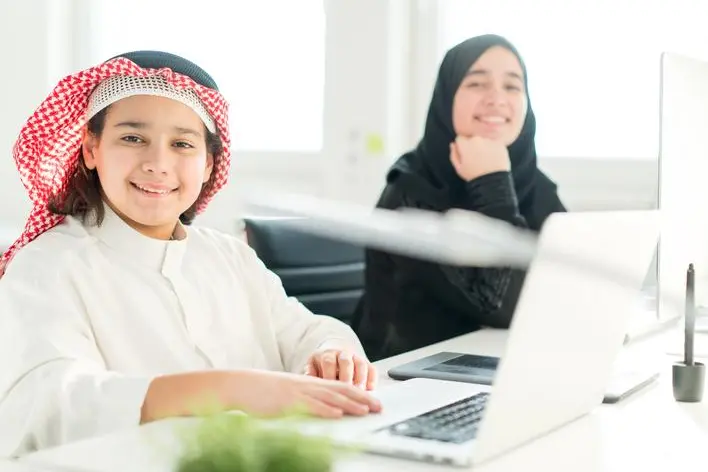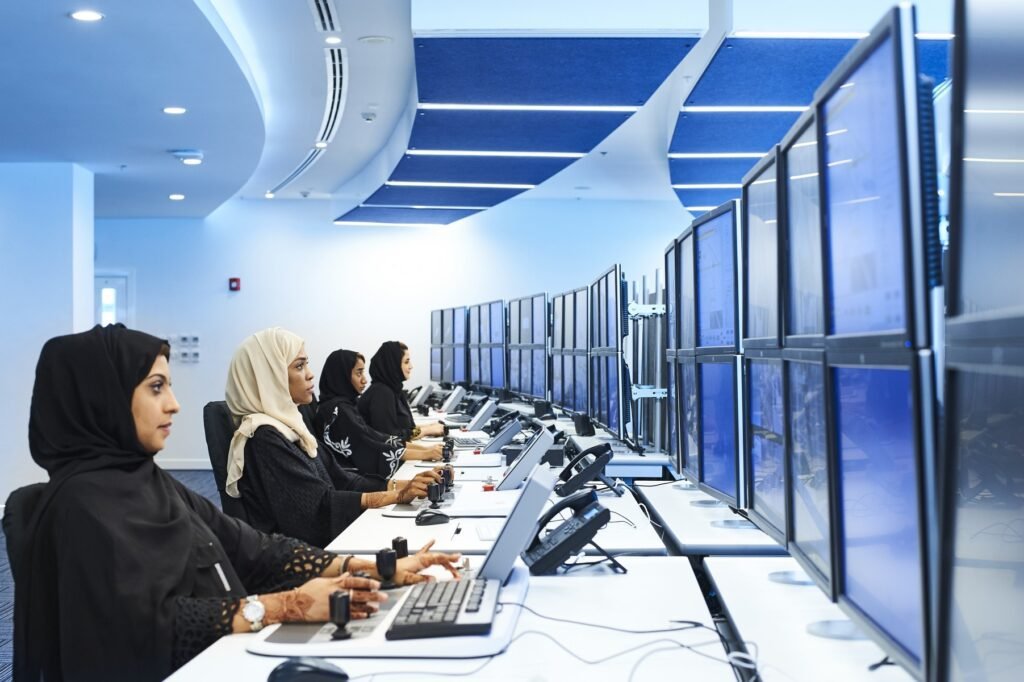In a world increasingly shaped by artificial intelligence, one Emirati coder is ensuring no child is left behind—no matter where they live. Meet Aisha Al Nahyan, a trailblazing tech educator from Abu Dhabi who is transforming the way children in remote parts of the UAE access and engage with technology.
Aisha’s mission is bold: to teach children in rural and underserved communities not just how to use computers, but how to build the future with them. Through her grassroots AI education initiative, she’s proving that coding isn’t just for the privileged or the urban—it’s for everyone.
A Journey from Curiosity to Commitment
Aisha’s fascination with coding began in her teens. As one of the few girls in her class interested in computer science, she recalls the challenge of navigating a field still seen as male-dominated. After earning her degree in Artificial Intelligence and Robotics, she worked in a leading tech firm in Dubai. But something tugged at her—an unshakable desire to give back.

“I realized that while cities were booming with innovation labs and robotics camps, children in remote towns had barely touched a laptop,” she shares. “It felt unfair that a child’s zip code could determine their access to the future.”
That realization became her motivation. She quit her corporate job and founded Code Caravan UAE, a mobile tech lab on wheels. The idea was simple but powerful: bring technology and AI education directly to the places that needed it most.

Classrooms on Wheels
Code Caravan UAE travels across the Emirates, from the mountain villages of Ras Al Khaimah to the deserts of Liwa. The van is fully equipped with laptops, internet connectivity, and AI teaching kits designed for young learners. Inside, it’s more than a classroom—it’s a hub of imagination and possibility.
Each stop involves workshops tailored for different age groups. Children as young as seven learn about machine learning through fun, gamified lessons. Teenagers get hands-on experience in building chatbots and training simple neural networks.
“We don’t just teach them to code,” Aisha says. “We teach them to think critically, solve problems, and realize that they can shape the future of their communities.”
The Power of Representation
Aisha’s presence as an Emirati woman in tech is in itself a powerful message to the young girls she teaches. In regions where traditional roles often dominate the narrative, seeing a woman lead with confidence and technical knowledge opens doors—mental and social.
“Many of the girls initially shy away from the computers,” she notes. “But by the end of the session, they’re the ones asking the most questions.”
Her work has already reached over 1,500 students across the Emirates. And her initiative is growing, thanks to partnerships with educational organizations and backing from national innovation programs. One such collaborator is the UAE Ministry of Education’s AI for Youth program, which shares a mission of democratizing AI learning across the country.
Challenges on the Road
Running a mobile coding classroom isn’t without its hurdles. Technical issues, weather challenges, and logistical barriers are frequent. In some areas, even electricity is unreliable.
But Aisha sees these not as setbacks, but opportunities for creative problem-solving. She’s now developing solar-powered setups and offline coding tools, inspired by the resilience of the very students she teaches.
“One of my students coded his own math quiz app using just the resources we had on the van,” she smiles. “It’s moments like that which keep me going.”
Inspiring a Generation of Builders
Aisha believes that by teaching AI and coding to children now, she is planting seeds that will transform the UAE’s future. She envisions a new generation of problem-solvers who not only understand the technology but can use it to solve real issues in their own communities—whether it’s water conservation, smart farming, or local health apps.
And it’s already happening. In a recent project, a group of students from a village near Al Ain used machine learning to create a system that helps detect the ripeness of dates—blending traditional knowledge with cutting-edge tech.
Beyond the UAE
The impact of Aisha’s work is beginning to ripple beyond national borders. She has been invited to speak at regional tech conferences and is working with NGOs in Oman and Jordan to replicate the Code Caravan model. Her vision is to create a network of mobile AI classrooms that span the Middle East and North Africa.
“There’s no reason why a child in a remote village shouldn’t have the same opportunities as one in Silicon Valley,” she insists. “We just need to bring the tools closer to them.”
The Road Ahead
As AI continues to evolve rapidly, Aisha is staying ahead of the curve. She’s currently working on introducing lessons in generative AI and ethical computing for older students, ensuring they not only become users but thoughtful creators of technology.

Her story is a testament to what happens when passion meets purpose. And for the children of the UAE’s most remote areas, Aisha Al Nahyan is more than a teacher—she’s a beacon of what’s possible.
With every dusty mile her van covers, Aisha is coding a future filled with hope, opportunity, and equality—one child at a time.
Read More: What It Takes to Be a Female Race Car Driver in the Emirates














